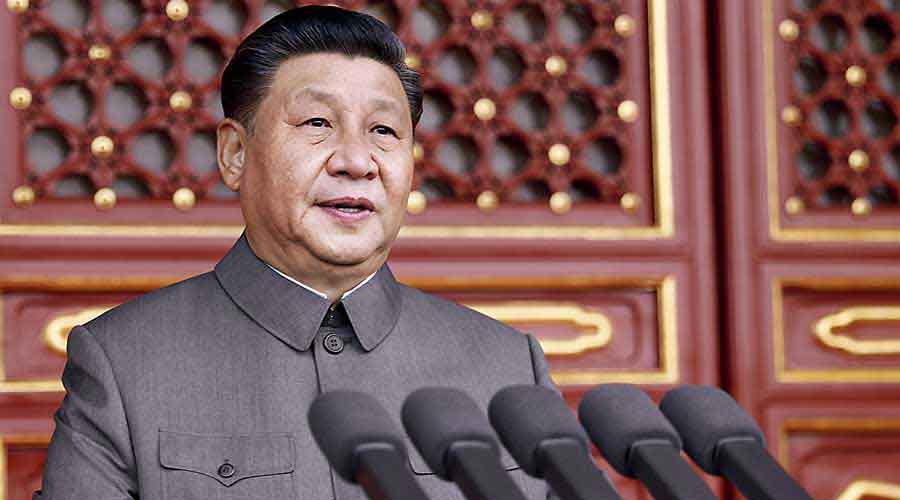For the past four decades, the Chinese communist party has followed the principle of ‘collective leadership’. The country’s top political body, the seven-member Politburo Standing Committee, takes key policy decisions. Last Thursday, the party broke with that tradition definitively. It passed what it calls a “historic resolution” — an updated version of the official history of communist China — for only the third time. The previous two occasions were in 1945 and 1981 under the communist party’s two tallest historical figures: Mao Zedong and Deng Xiaoping. In 2018, the party had changed its Constitution to remove a two-term limit for the leadership, effectively allowing Xi Jinping to remain in power for life. Last week’s resolution goes further: for the first time, it makes it clear that Mr Xi intends to stay in power beyond 2022, when his second term as party chief ends. The resolution outlines one of its key goals as “resolutely upholding Comrade Xi Jinping’s core position on the Central Committee and in the Party as a whole”. In essence, the resolution is Mr Xi’s boldest attempt yet to elevate himself to the stature of Mao and Deng in the pantheon of the party and China.
But resolutions drawn up and passed by bureaucrats and politicians do not shape legacies. Actions do — which is why Mr Xi’s efforts to enhance the cult of his personality should worry China’s neighbours and the world. Mao led the communist revolution and played a central role in liberating China from Japan and feudal practices, deeds that his horrific subsequent actions — which led to mass famine, political violence and chaos — have not been able to erase. Deng unleashed the economic reforms that have helped China pull more people out of poverty than any nation in history. In order for the ordinary Chinese to view him in the same league as Mao or Deng, Mr Xi must do something similarly transformative. Until now, Mr Xi’s signature policies have been a crackdown on corruption and, more recently, a clash with China’s top private sector businesses ostensibly aimed at reducing inequality. Yet Mr Xi will know he needs to do more to organically evoke comparisons with Mao or Deng. Will he attempt to capture Taiwan to portray himself as the great unifier of the motherland? Will he try to militarily grab the South China Sea? Or will he surprise everyone by moving in a liberal direction after consolidating power? China’s future is at stake. As is the world’s.










